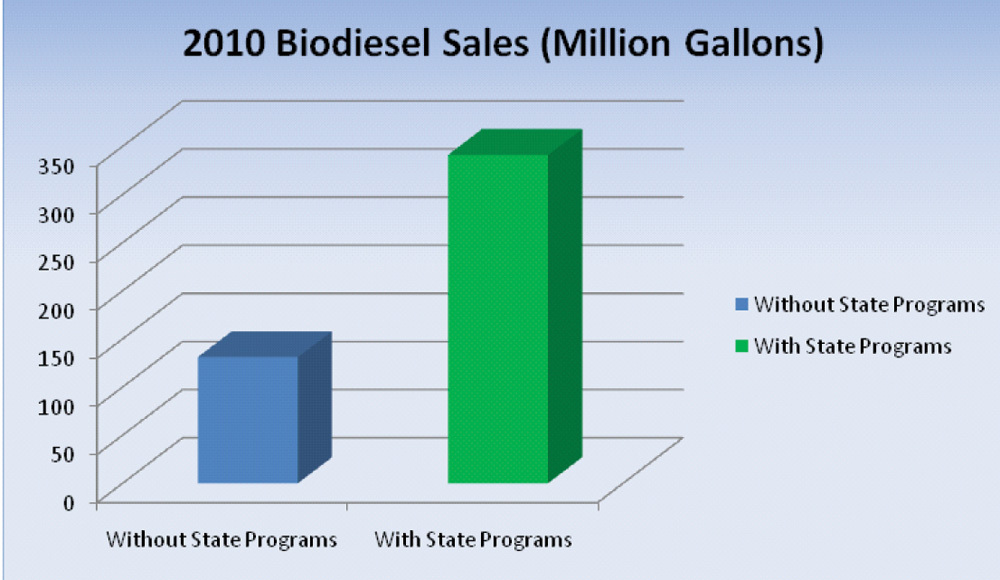The Value of Insurance When Devastation Strikes



July 15, 2011
BY Shelby Neal
As someone who hails from Joplin, Mo., a town that was recently hit by one of the most destructive tornados in U.S. history, I have come to understand the value of insurance in a way that many, thankfully, never will. Along with inner strength, faith, hope, and courage, good insurance is a critical component for weathering devastating events like those recently experienced in my hometown.
While the U.S. biodiesel industry hasn’t lived through anything as vicious as the Joplin tornado, last year, we did survive the market equivalent of an F5-rated twister with the combined loss of the federal tax credit, renewable fuel standard, and major international markets. Along with those essential personal qualities that are helping Joplinites recover from their disaster, insurance, in the form of state policies, has also helped the biodiesel industry survive its own disaster.
Last year was, of course, not great by any measure. But were it not for state policies, industry sales and production would have been at levels just north of 15 percent of their 2008 highs. With state policies in place, however, the industry produced at a rate a little over 40 percent of that high water mark—still not good, but much better than the alternative.
One of my goals as NBB’s director of state governmental affairs is to help our members establish a system of state programs around the country that are sturdy enough to survive even the strongest of storms. We aren’t there yet, but we continue to move forward with more and better state policies each and every year. In 2010, for example, Connecticut and New York City passed sweeping Bioheat requirements. This year, Vermont passed a statewide Bioheat requirement. All told, nine states and two major municipalities have now passed biodiesel blend requirements. Once implemented, these policies will comprise a meaningful safety net for the industry.
Advertisement
Advertisement
In addition, even during trying fiscal times, states continue to pass consumption incentives for biodiesel that increase market share for our product. This year, Iowa passed a 4.5-cent incentive for blends of biodiesel at or above five percent and New York State passed an incentive of up to 20 cents per gallon for B20 Bioheat blends. These policies, which join dozens of similar measures on the books in other states, provide a level of certainty for the biodiesel industry that markets will exist even in the absence of key federal policies.
Ultimately, policymakers nearly everywhere realize that biodiesel is a great product. It’s clean, it’s renewable, and it’s made in their own backyards. For these reasons, I believe we will continue to see state markets expand in the coming years through blend requirements, market-based incentives, and carbon reduction initiatives. And who knows, one day state policies may even overtake federal policies as the principal industry drivers. Until that time, however, we will continue growing state programs, the U.S. biodiesel industry’s insurance policy.
Shelby Neal, Director of State Governmental Affairs,
National Biodiesel Board
Advertisement
Advertisement
Upcoming Events





